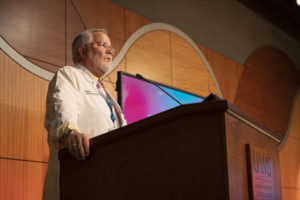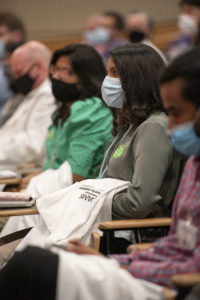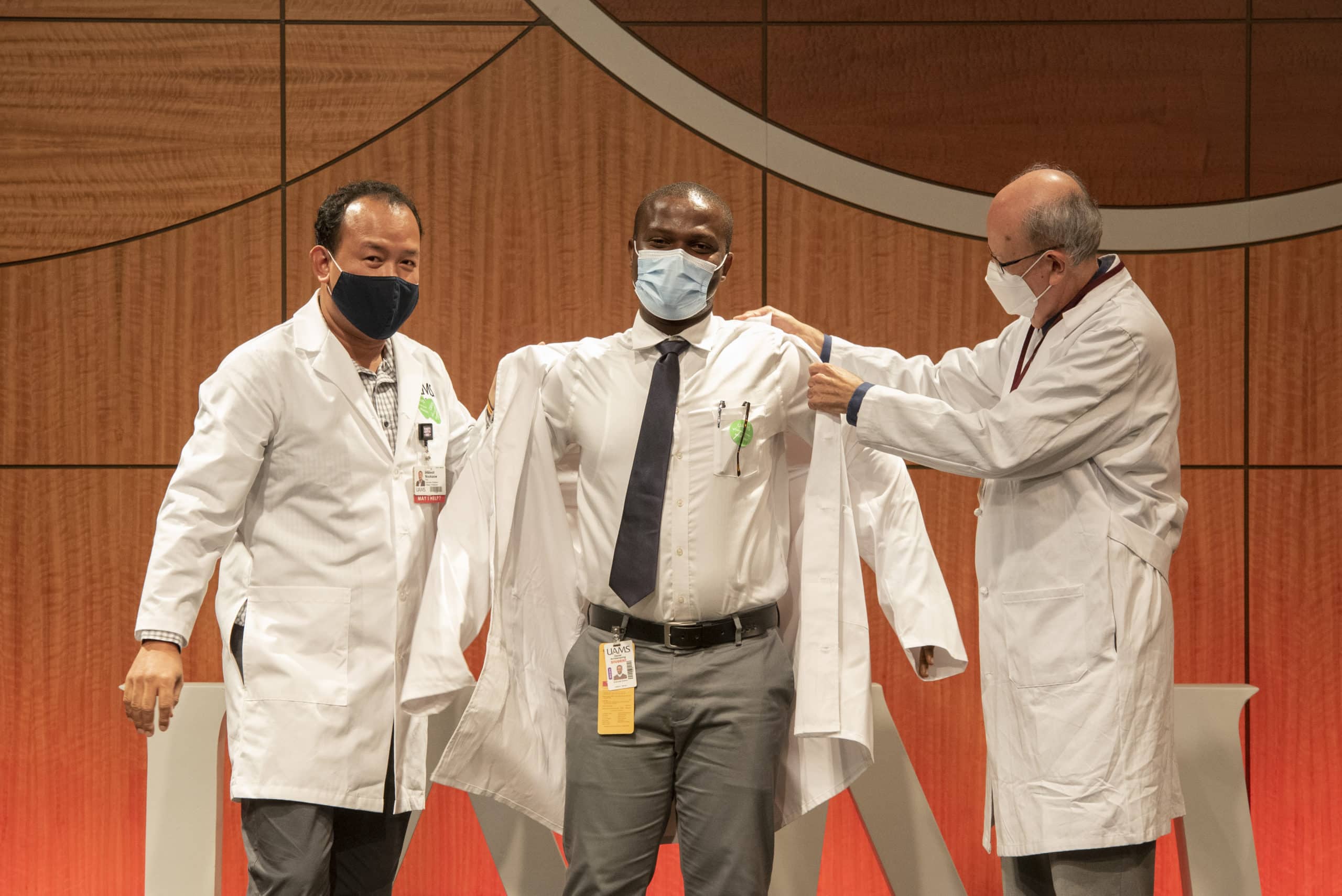Research Induction Ceremony Recognizes Graduate Students’ Progress
| The UAMS Graduate School recognized 52 students during a research induction ceremony Sept. 13.
The students, who have passed their Ph.D. qualifying exams and are moving into the research phase of their pursuits of doctoral degrees, were presented with white lab coats by their advisors and mentors.

Graduate School Dean Robert McGehee Jr., Ph.D., speaks at a research induction ceremony on Sept. 13.
The donning of each coat, embroidered with their names, took just a few moments for each student from 10 programs. But the ceremony marked the achievement in their professional careers and signaled the additional work that lies before them.
“This is a major milestone for the students who are participating, for the faculty who helped them get there and for the mentors who are about the help our students complete their Ph.D. degrees,” said Graduate School Dean Robert McGehee Jr., Ph.D.
A crowd of about 100, including 44 of the students, their mentors and program directors, gathered in the 12th floor Fred Smith auditorium of the Jackson Stephens Spine & Neurosciences Institute, while approximately 200 Graduate School’s faculty, relatives and friends watched the live stream online.
“This is one of largest events we have in the Graduate School with over a couple hundred attendees,” said McGehee. “Last year we had to completely cancel the entire event due to the COVID-19 pandemic, but this year we simply weren’t going to do that.”
Instead, the Graduate School held a hybrid event that recognized two years of students who have completed their initial three to four semesters of coursework and passed their Ph.D. candidacy exam, known as the qualifying or oral exam. “I have never met a Ph.D. who forgets their candidacy exam because it is often pretty intimidating, and rightfully so,” McGehee said.

The Graduate School recognized 52 students at the ceremony.
“These students being recognized here today have all officially become Ph.D. Candidates, and it is really a very significant milestone,” he said. “The white coat is symbolic of what each of these students has accomplished.”
After passing their oral exam, students then work with a mentor on their research projects and dissertations, which are required for graduation. At UAMS, graduation for a Ph.D. is just shy of less than five years, about six months less than the national average.
After the last of the students put on their coat, the group recited the affirmation of scientists, which reminds students to consider the honor, integrity and professionalism involved in research as well as the public trust that should not be violated.
“It is a major transition to go from having a program director to a major advisor,” McGehee said. “And when it’s done correctly, it often forms a relationship and a friendship that is an incredible bond and can often last a lifetime.”
